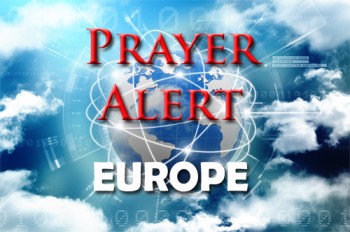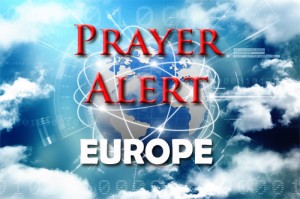Displaying items by tag: AfD
‘Germany is back’ after Merz secures coalition agreement
Germany's conservatives, led by Friedrich Merz, have formed a coalition with the Social Democrats, ending five months of political uncertainty. Merz, 69, promised strong leadership, reforms, and renewed international confidence, declaring, ‘Germany is back on track’. The coalition plans major investments in defence and infrastructure, made possible by reforms to strict debt rules. A key focus is controlling irregular migration and restoring voter trust. Despite pressure from the far-right AfD, which recently topped opinion polls, Merz promised to balance firm border policies with democratic values. The coalition also pledges increased military spending and voluntary service, following Sweden’s model. Boris Pistorius will remain as defence minister, ensuring continuity. Support for Ukraine and fulfilling NATO commitments are central to the agenda. While critics question the coalition’s ability to end the recession, Merz remains optimistic.
Germany: chancellor-elect criticises Trump, struggles to form coalition
Following the 23 February election, Christian Democratic Union (CDU) leader Friedrich Merz has criticised Donald Trump, calling for European defence independence. He warned that NATO’s future was uncertain and called for urgent action on European security. Despite strong rhetoric, his party won only 28.6% of the vote - its weakest victory since 1949. He is negotiating a coalition with the Social Democratic Party (SPD), led by Olaf Scholz, but deep divides remain. Merz favours arming Ukraine, reviving nuclear energy, cutting welfare, and maintaining Germany’s constitutional deficit ceiling, while Scholz has resisted sending missiles to Ukraine and advocates loosening fiscal constraints. Immigration is another battleground, with Merz pushing to curb family reunification. Germany’s role in NATO, economic policy, and military spending hang in the balance as these leaders attempt to bridge their stark differences. The election results, especially the strong showing by the far-right party AfD, highlighted the deep divide between East and West Germany: see
Germany: influence of AfD
Alternative for Germany (AfD), founded in 2013, is a right-wing populist and Eurosceptic political party. In 2016 it made an alliance with the Freedom Party of Austria, with both party leaders saying border control officers should use armed force if necessary to protect the border. By May 2017, the AfD had gained representation in 13 of the 16 German state parliaments. Now it has become the third largest party in the German parliament, partly because immigration was the main election issue. Postwar Germany is multicultural, tolerant and liberal: abhorring war, and defending the environment, human rights and international teamwork. BUT the influx of over one million Muslim migrants, Russia’s dramatic resurgence, and Europe’s rolling financial problems are arousing other feelings and aspirations. These emotions don’t square with the desire to be tolerant and multicultural. Many are saying that a more powerful, more assertive, more terrifying Germany is coming.


